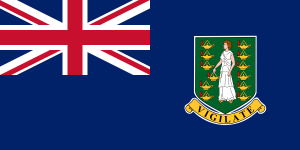Language/Virgin-islands-creole-english/Vocabulary/Feelings-and-Emotions
Hi Virgin Islands Creole English learners! 😊
In this lesson, you will learn how to talk about your feelings and emotions in Virgin Islands Creole English. We will cover a range of emotions from happy to sad, and provide cultural information and interesting facts along the way. Let's get started!
Take a moment to explore these relevant pages as you conclude this lesson: Animals & Drinks.
Vocabulary[edit | edit source]
Here is a list of common feelings and emotions in Virgin Islands Creole English:
| Virgin Islands Creole English | Pronunciation | English Translation |
|---|---|---|
| Jolly | jo-lee | Happy |
| Frustrate | fuhs-treyt | Frustrated |
| Miserable | mi-zuh-ruh-buh l | Miserable |
| Worried | wur-ee-d | Worried |
| Confused | kuhn-fyoozd | Confused |
| Angry | ahn-gree | Angry |
| Sad | sahd | Sad |
| Surprised | suh-prahyzd | Surprised |
| Excited | ik-sahy-tid | Excited |
| Depressed | dih-prest | Depressed |
| Tired | tahyuhrd | Tired |
| Jealous | jel-uhs | Jealous |
Expressions[edit | edit source]
Now that you know the words for different emotions, let's take a look at some common expressions:
- I'm feeling jolly today. (Meaning: I'm happy today.)
- She was frustrated with her job. (Meaning: She was unhappy and dissatisfied with her job.)
- He looked miserable when he got home. (Meaning: He looked very sad.)
- They are worried about the exam. (Meaning: They're anxious about the exam.)
- I'm confused about the instructions. (Meaning: I don't understand the directions.)
- She got angry when he spilled the juice. (Meaning: She became furious when he spilled the juice.)
- He's been feeling sad for a few weeks. (Meaning: He's been feeling down and unhappy for a few weeks.)
- She was surprised to see her friends at the party. (Meaning: She didn't expect to see her friends at the party.)
- I'm excited to start my new job. (Meaning: I'm looking forward to starting my new job.)
- He's been feeling depressed lately. (Meaning: He's been feeling very sad and hopeless lately.)
- I'm tired after a long day at work. (Meaning: I'm exhausted after a long day at work.)
- She's jealous of her neighbor's new car. (Meaning: She envies her neighbor's new car.)
Dialogue[edit | edit source]
Here's a dialogue so you can see these words in context:
- Person 1: Ah feeling jolly today! (Translation: I'm feeling happy today!)
- Person 2: Dat's great! What got yu so jolly? (Translation: That's great! What made you so happy?)
- Person 1: Ah pass de exam ah bin worried 'bout. (Translation: I passed the exam I was worried about.)
- Person 2: Ah knew yu cud do it! (Translation: I knew you could do it!)
Cultural Information[edit | edit source]
In the Virgin Islands, emotions are often expressed through body language and facial expressions. For example, it's common for people to use hand gestures and facial expressions to show anger, frustration or excitement. When someone is happy or excited, they may clap their hands or do a little dance. When someone is angry, they may clench their fists or raise their voice. Nonverbal communication plays a significant role in expressing emotions in Virgin Islands Creole English culture.
Interesting Facts[edit | edit source]
Did you know that there are over 200 different words for "rain" in Virgin Islands Creole English? This reflects the importance of rain to the islands as it is essential for agriculture, replenishing water supplies and maintaining the lush vegetation of the islands. Some of the words used for "rain" include "drop," "drizzle," "downpour," and "mist."
Practice[edit | edit source]
To improve your Virgin Islands Creole English Vocabulary, you can also use the Polyglot Club website. Find native speakers and ask them any questions! You can also practice with these exercises:
- Describe a time when you were feeling angry or frustrated.
- Use at least 5 of the emotions and expressions from this lesson in a story or dialogue.
- Write a short paragraph about how you're feeling today.
Sources[edit | edit source]
➡ If you have any questions, please ask them in the comments section below.
➡ Feel free to edit this wiki page if you think it can be improved. 😎

